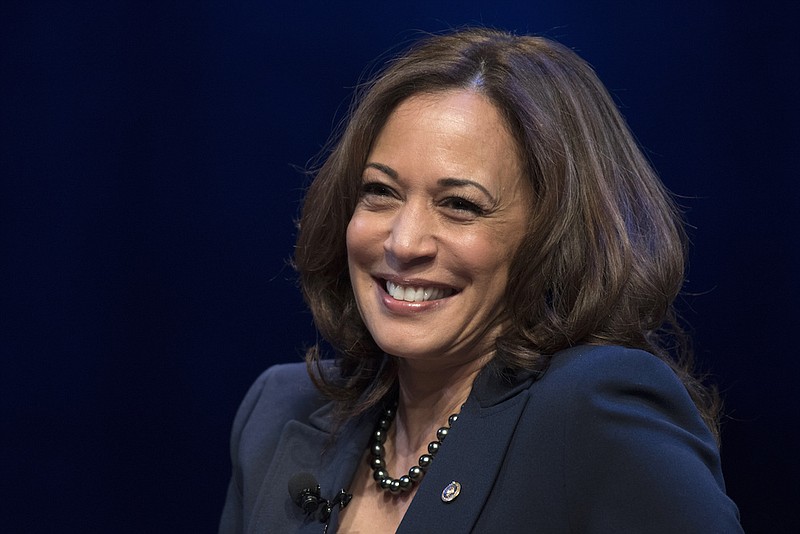The vice presidency has come a long way since John Adams called it "the most insignificant office" ever conceived, and John Nance Garner referred to it as "not worth a bucket of warm p-."
For more than four decades, most vice presidents have received significant presidential assignments. For most, however, efforts to elevate their standing politically have brought mixed success. More lost later presidential races than won them, and the elder George Bush is still the only sitting vice president elected president in the last 184 years.
The recent difficulties of the current vice president, Kamala Harris, illustrate how hard it will be for the first Black woman to hold the office to establish a record that could help her one day be elected president.
For one thing, President Joe Biden has asked her to manage two areas, immigration and voting rights, where the underlying problems are so substantively complex and politically intractable that success may prove elusive.
For another, in carrying out her mandate to tackle the issues at the root of the immigration problem, the vice president has shown some of the same lack of political deftness that marked her brief but unsuccessful 2019 presidential bid.
In announcing her assignment, Biden said he asked the vice president "to lead our efforts with Mexico and the Northern Triangle." But many news accounts defined her role broadly. Politico, for example, said Harris had been named "the White House's point person on immigration issues at the nation's southern border," though it also said she "would not be owning the entire immigration portfolio for the administration."
Republicans, correctly tabbing the border as an administration vulnerability and Harris a riper political target than Biden, mislabeled her the "immigration czar," setting her up for blame if her efforts fail to stem the tide of illegal entries.
And Republicans have repeatedly demanded to know why the "immigration czar" was not going to the border to inspect the problem herself.
Harris refused to take the bait, though she could easily have made an early visit on her terms.
In addition, by consistently refusing to take questions about her role, it was inevitable that, when she visited the region in early June, she would be asked. What was not inevitable was that she would be so ill-prepared to reply.
"The question that has come up and you heard it here and you'll hear it again I'm sure, is, 'why not visit the border?'" NBC Nightly News anchor Lester Holt asked Harris.
"We have to deal with what's happening at the border," she replied, adding that her focus was on why people were coming. When Holt asked if she had any plans to visit the border, she replied, "At some point, you know, we are going to the border," then added three times, "We've been to the border" - apparently a reference to visits while a California senator.
"You haven't been to the border," Holt said. "And I haven't been to Europe," Harris said, a flip answer that hardly helped her out of the political hole she had dug.
The next day, talking to reporters in Mexico City, Harris tried to explain her position, saying, "You can't say you care about the border without caring about the root causes," and declaring again, "I've been to the border before. I will go again."
That satisfied neither her GOP critics nor some Democrats. Harris came under fire from some party progressives like New York Rep. Alexandria Ocasio-Cortez by repeatedly reiterating the administration policy warning prospective immigrants not to come.
Meanwhile, Harris' assignment on voting rights seems mainly directed at generating public pressure, given the bipartisan skepticism that she will be effective in persuading moderate Democratic and Republican lawmakers to back legislative action.
"Kamala Harris Can't Win," headlined a recent column in which Frank Bruni of The New York Times summarized her challenges in handling such daunting assignments amid sharp partisan attacks.
While he meant in general, he noted that judgment may also apply to her political future. After all, even under optimal conditions, it's never easy for vice presidents to move up.
The Dallas Morning News
